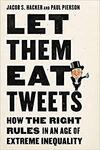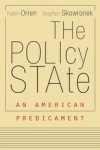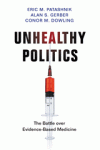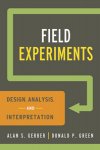Publications
About Our Publications
On this page you will find a list of publications by ISPS Affiliates, including peer-reviewed journal articles, policy briefs, and working papers.
When possible, Publications are linked to Projects and Data via the ISPS KnowledgeBase.
|
Title |
Author(s) | Discipline | Publication | Year |
|---|---|---|---|---|
| A Field Experiment Shows That Subtle Linguistic Cues Might Not Affect Voter Behavior |
Alan S. Gerber, Gregory A. Huber, Daniel R. Biggers, and David J. Hendry |
Political Science | Proceedings of the National Academy of Sciences | 2016 |
| Accountability Reconsidered: Conclusion: Assessing Contemporary Accountability |
Charles M. Cameron, Brandice Canes-Wrone, Sanford C. Gordon, and Gregory A. Huber |
Political Science | Book chapter | 2023 |
| Accountability Reconsidered: Introduction |
Charles M. Cameron, Brandice Canes-Wrone, Sanford C. Gordon, and Gregory A. Huber |
Political Science | Book chapter | 2023 |
| Are Voting Norms Conditional? How Electoral Context and Peer Behavior Shape the Social Returns to Voting |
David Doherty, Conor M. Dowling, Alan S. Gerber, and Gregory A. Huber
|
Political Science | Journal of Politics | 2017 |
| Assessing the Programmatic Equivalence Assumption in Question Wording Experiments: Understanding Why Americans Like Assistance to the Poor More Than Welfare |
Gregory A. Huber and Celia Paris |
Political Science | Public Opinion Quarterly | 2013 |
| Assessing the Stability of Psychological and Political Survey Measures |
Gerber, Alan S., Gregory A. Huber, David Doherty, and Conor M. Dowling |
Interdisciplinary | American Politics Research | 2012 |
| Ballot Secrecy Concerns and Voter Mobilization: New Experimental Evidence About Message Source, Context, and the Duration of Mobilization Effects |
Alan S. Gerber, Gregory A. Huber, Daniel R. Biggers, David J. Hendry |
Political Science | American Politics Research | 2014 |
| Big Five Personality Traits and Responses to Persuasive Appeals: Results from Voter Turnout Experiments |
Alan S., Gerber, Gregory A. Huber, David Doherty, Conor M. Dowling, Costas Panagopoulos |
Political Science | Political Behavior | 2012 |
| Can Citizens Assess Policies Based on Programs’ Costs and Benefits? The Role of Yardsticks and Contextual Information in Democratic Accountability |
Eric M. Patashnik, Patrick Tucker, and Alan S. Gerber |
Political Science | Book chapter | 2023 |
| Can Incarcerated Felons Be (Re)integrated into the Political System? Results from a Field Experiment |
Alan S. Gerber, Gregory A. Huber, Marc Meredith, Daniel R. Biggers and David J. Hendry |
Political Science | American Journal of Political Science | 2014 |
| Can Political Participation Prevent Crime? Results from a Field Experiment About Citizenship, Participation, and Criminality |
Alan S. Gerber, Gregory A. Huber, Daniel R. Biggers, David J. Hendry |
Political Science | Political Behavior | 2017 |
| Can Raising the Stakes of Election Outcomes Increase Participation? Results from a Large-Scale Field Experiment in Local Elections |
Gregory A. Huber, Alan S. Gerber, Daniel R. Biggers and David J. Hendry |
Political Science | British Journal of Political Science | 2022 |
| Citizens’ Policy Confidence and Electoral Punishment: A Neglected Dimension of Electoral Accountability |
Alan S. Gerber, Gregory A. Huber, David Doherty and Conor M. Dowling |
Political Science | Journal of Politics | 2011 |
| Disagreement and the Avoidance of Political Discussion: Aggregate Relationships and Differences across Personality Traits |
Alan S. Gerber, Gregory A. Huber, David Doherty and Conor M. Dowling |
Political Science | American Journal of Political Science | 2012 |
| Do Means of Program Delivery and Distributional Consequences Affect Policy Support? Experimental Evidence About the Sources of Citizens’ Policy Opinions |
Vivekinan L. Ashok and Gregory A. Huber |
Political Science | Political Behavior | 2019 |
| Do Perceptions of Ballot Secrecy Influence Turnout? Results from a Field Experiment |
Alan S., Gerber, Gregory A. Huber, David Doherty, Conor M. Dowling, and Seth J. Hill |
Political Science | American Journal of Political Science | 2013 |
| Do Subtle Linguistic Interventions Priming a Social Identity as a Voter Have Outsized Effects on Voter Turnout? Evidence From a New Replication Experiment |
Alan Gerber, Greg Huber, and Al Fang |
Political Science | Political Psychology | 2017 |
| Does Incarceration Reduce Voting? Evidence about the Political Consequences of Spending Time in Prison |
Alan S. Gerber, Gregory A. Huber, Marc Meredith, Daniel R. Biggers, and David J. Hendry |
Political Science | Journal of Politics | 2017 |
| Evaluating Online Labor Markets for Experimental Research: Amazon.com's Mechanical Turk |
Adam J. Berinsky, Gregory A. Huber, Gabriel S. Lenz |
Political Science | Political Analysis | 2012 |
| Experimental Evidence That Changing Beliefs About Mask Efficacy and Social Norms Increase Mask Wearing for COVID-19 Risk Reduction: Results From the United States and Italy |
Scott E. Bokemper, Maria Cucciniello, Tiziano Rotesi, Paolo Pin, Amyn A. Malik, Kathryn Willebrand, Elliott E. Paintsil, Saad B. Omer, Gregory A. Huber and Alessia Melegaro
|
Interdisciplinary | PLOS ONE | 2021 |
ISPS Working Paper Series
ISPS advances interdisciplinary research in the social sciences that aims to shape public policy and inform democratic deliberation. The ISPS network includes scholars and students from many departments in the Faculty of Arts and Sciences and from Yale’s graduate and professional schools as well as select experts from other institutions. The ISPS Working Paper Series provides a platform for ISPS affiliates to make their work available for public consumption and discussion.
Featured Books by ISPS Faculty
ISPS Sponsored Publications
ISPS Politics & Policy Book Series: A series striving to place policy- and law-making in historical and comparative perspective, reflecting the broad, multidisciplinary character of ISPS.
ISPS Journal: A biannual publication that serves to highlight ISPS scholars’ publications and as a development piece for foundations and interested donors.
GOTV website: A website compiling results from a wide array of voter mobilization field experiments. Findings from these scientifically measured studies of various Get-Out-the-Vote methods offer valuable insight into which methods are most effective in mobilizing voter turnout (Note: the website indexes GOTV experiments published before 2006).
The Bulletin of Yale University includes several issues devoted to ISPS (PDF): 2000-2002, 2002-2004, 2004-2006, and 2006-2008.






